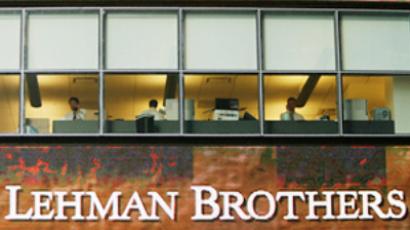Russia looking to avoid worst of economic downturn
A volatile Eurozone sees Russia with almost no exposure to national debt, but with markets pricing in a wider contagion, Russia would be affected by a return to recession.
With the budget woes of Greece now well and truly being implicated in debt markets across the Eurozone, markets are increasingly pricing in the prospect continuing problems, with the PIIGS nations of Portugal, Italy, Ireland, Greece and Spain all seen as financial disaster areas, and sentiment in the northern European nations, such as Germany and the Netherlands, which have some scope for offering assistance, wearing thin.
Russia’s direct exposure to the emerging Euro-contagion is limited according to Andrew Howell, CFA Emerging Markets Strategy at Citigroup
“There’s much less of a direct financial link either through debt markets or through to the banking sector from Greece in particular and even from some other struggling European economies to Eastern Europe and Russia.”
But that doesn’t mean Howell believes wont be affected. It is almost certain that the tightening of in debt markets and mass investor desertion of government debt from the PIIGs nations will lead to a slowdown in a European economic recovery that has barely come out of the last recession, and in the directly affected nations, hasn’t come out of recession at all. With the EU the worlds largest single economy, and Russia’s largest trading partner, the implications for Russia – despite it not being a buyer of Euro debt – are enormous.
“Real contagion and that has to do with a direct impact of slower economic growth in Europe on the emerging markets and there you do worry if you’re going to see major downgrades to the European growth. But the losers from that would be those countries which are exposed to the European import markets.”
Europe is the important customer for Russia's energy and commodity exports. A major downturn in revenues from these will quickly be felt in Russia’s current account and budgetary position. Another key factor is that the EU is a major provider of many products that Russia imports. The devaluation of the Euro against the Rouble – it has dropped from more than 43 to 1, to less than 38 to one in less than 2 months – means that those exports are now more competitive against any domestic producers.
Elina Ribakova, Citigroup Chief Economist says that Russia’s underlying budget and corporate debt environment is particularly sound meaning it is in a good position to weather a downturn if worse comes to worst.
“If you look at balance sheets of different sectors of the economy we see that the sovereign balance sheet is very healthy, the corporate balance sheets have stabilized. And then the final and most important aspect in Russia’s economy balance sheet is the household balance sheet and that one has a particularly healthy debt to GDP ratio of households at less than 10%.”
But even with a sound debt position to help square up to any renewal of a global economic downturn, Russia’s economy and economic leaders, would prefer to avoid it. The country is still barely gaining traction on an economic rebound with the 1Q 2010 GDP figures worse than forecast, and only massive government expenditure warding off major social consequences of the 8.9% contraction of 2009. As the government looks to wean the economy off its expenditure in 2010 and beyond, any further reversal into recession in the EU could leave the Russian economy more exposed, a second time around.













